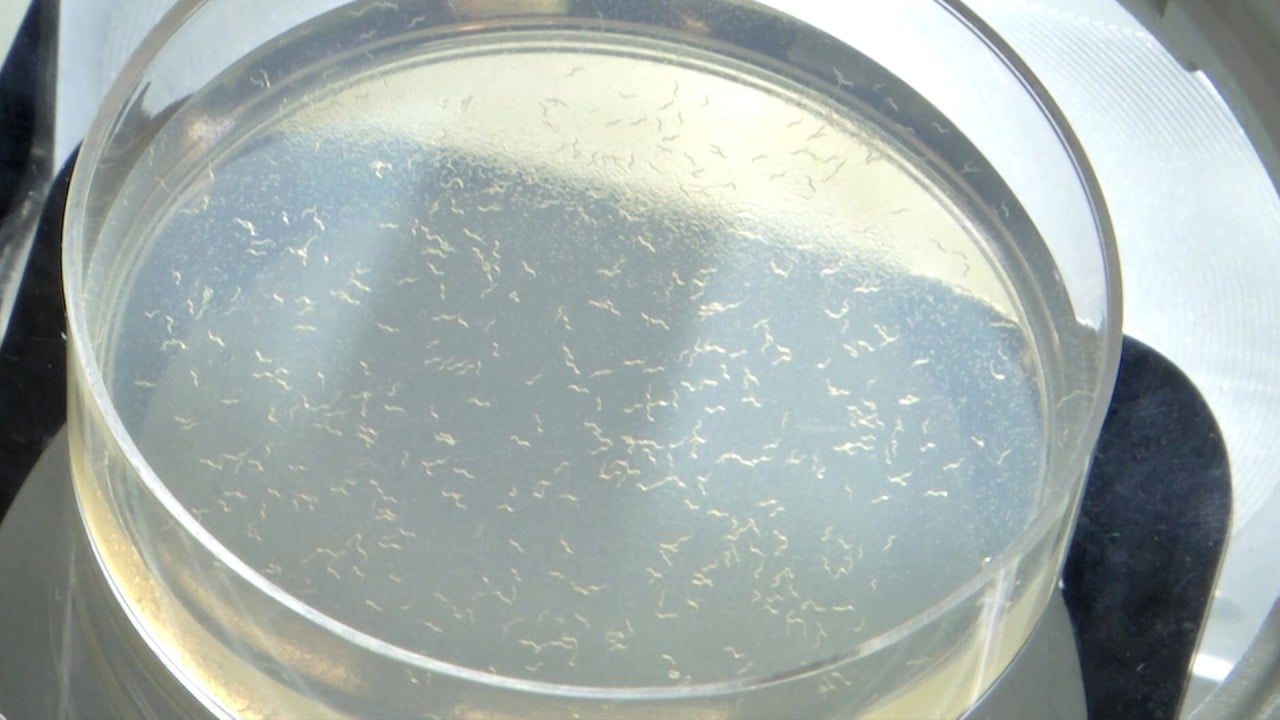
Chinese diagnosis of world’s youngest person with probable Alzheimer’s set to change thinking about disease
- 19-year-old identified with the condition after he had trouble studying, frequently lost belongings, could not remember eating and had to withdraw from high school
- ‘Exploring the mysteries of young people with Alzheimer’s disease may become one of the most challenging scientific questions of the future’: researchers
A 19-year-old male was diagnosed with probable Alzheimer’s disease after his memory declined gradually over two years, according to researchers from Capital Medical University’s Xuanwu Hospital in Beijing.
The authors said the patient had characteristics typical of Alzheimer’s disease, including memory loss and hippocampal atrophy, a shrinkage that is an early marker of the disease.
They ruled out other causes that may have induced the patient’s cognitive impairment and concluded that he met the diagnostic criteria for probable Alzheimer’s disease.
Their study was published in the peer-reviewed Journal of Alzheimer’s Disease on January 31.
The study altered the world’s understanding of the typical age of onset of Alzheimer’s disease and overturned the traditional view that Alzheimer’s disease was exclusively for the elderly, the authors wrote in a statement on February 1.
“[The study] proposed to pay attention to the early-onset Alzheimer’s disease. Exploring the mysteries of young people with Alzheimer’s disease may become one of the most challenging scientific questions of the future,” they said.

Early-onset Alzheimer’s disease is an uncommon form of dementia that affects people younger than 65. It accounts for 5 to 10 per cent of all cases of Alzheimer’s disease.
Almost all Alzheimer’s disease patients younger than 30 have pathological gene mutations, according to the authors. To date, the youngest person known to have been diagnosed with Alzheimer’s disease was a 21-year-old who carried a gene mutation.
But the adolescent patient of the most recent study differed from previous young patients because no known genetic mutations were identified in the 19-year-old who was diagnosed in China.
Two years before the consultation in hospital, the patient began having difficulties concentrating on his high school studies. His situation worsened a year later when he began suffering from an apparent loss of short-term memory, according to the study.
He could not remember the events of the previous day or where his belongings were stored and had difficulty reading and his reactions were delayed.
Chinese study shows healthy lifestyle can slow age-related memory loss
His memory gradually declined. He frequently lost his personal belongings, could not remember whether he had eaten or not and could not finish his homework. In the end, he had to withdraw from high school.
His results were abnormal on the widely used auditory verbal learning test, which assessed immediate recall, short-delay free recall, long-delay free recall and long-delay recognition, the study said.
The results suggested his memory was significantly impaired, the study said.
“This is the youngest case ever reported to meet the diagnostic criteria for probable [Alzheimer’s disease] without recognised genetic mutations,” the authors said, adding that almost all previous younger patients younger than 30 had known genetic mutations.
George Perry, a professor at the University of Texas at San Antonio and who was not involved in the study, said further research was required to understand if Alzheimer’s disease, like dementia, in youth was becoming more common. He said neuropathology evidence would shed further light on this case and its relationship to Alzheimer’s.
“This case brings attention to the heterogeneous nature of dementia that can involve people at any age,” said Perry, who is also the editor-in-chief of the Journal of Alzheimer’s Disease.
“Significantly, this finding may separate Alzheimer’s disease from the complexity of ageing and open the field to new concepts to promote innovation.”
Number of people with dementia on course to triple by 2050
Perry said some recent reports suggested there might be an increase in the incidence of early-onset Alzheimer’s disease, but he said it might also be a case of greater recognition of the condition.
“Finding a 19-year-old [with probable Alzheimer’s disease] moves the issue from middle-age onset (current concept) to early adulthood,” he said.



